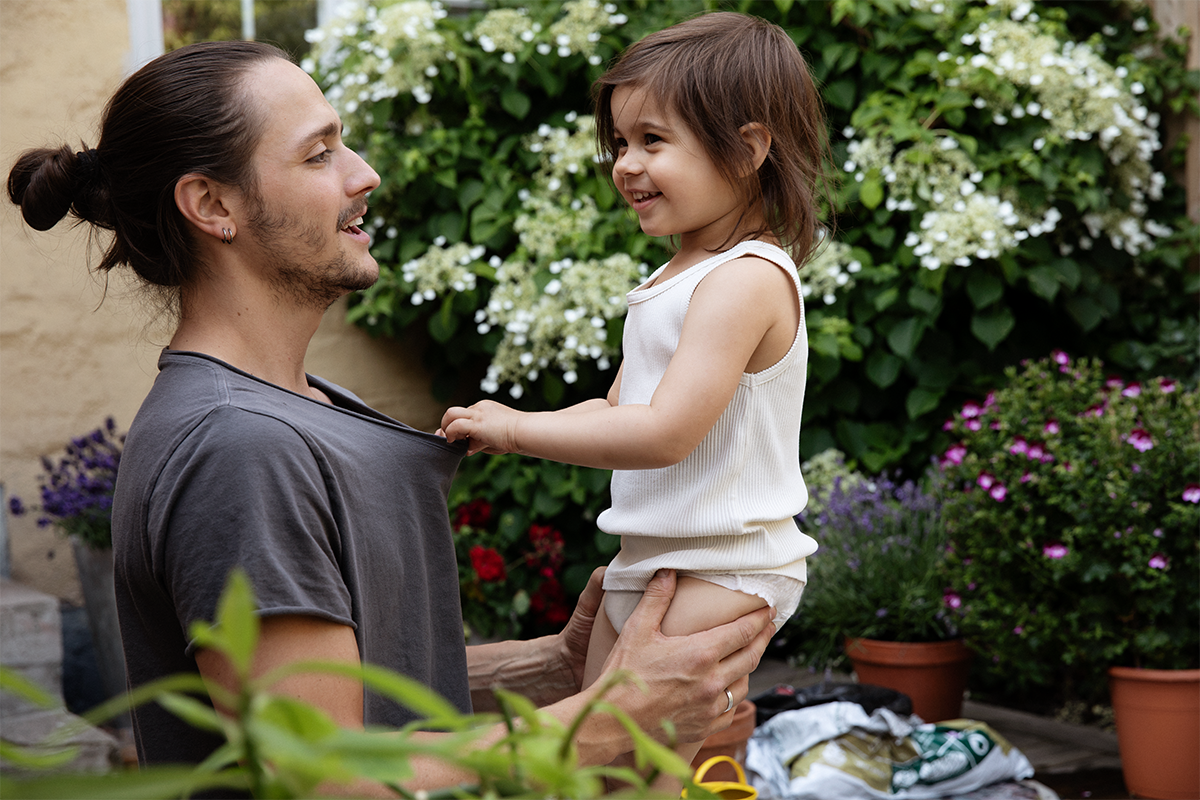Is your baby a high need baby?
Having a baby is undoubtedly demanding. Our little ones need physical care and emotional contact more or less around the clock. But some babies exhibit a faster pace, stronger emotions and greater demands for stimulation than others. The term high need baby is sometimes used to refer to these children, and in this article we discuss what this actually means and provide tips for parents of high need babies.
Why can ALL other babies sleep in their pram? Why is it ONLY my baby who can’t sit on the floor alone and play, not even for a single minute? Why does every food situation become such a struggle? How can I live a normal life when my baby constantly becomes over-excited from meeting people? Will things always be like this? Am I doing something wrong? As the parent of a child with a need for “extra everything”, you may sometimes be beside yourself with frustration, and it is easy to start making comparisons with how others are doing. This is both unnecessary and unhelpful – instead, the key is finding strategies that you can use to make everyday life function as smoothly as possible.
What does the term high need baby actually mean?
The term high need baby is used in an attempt to describe babies with an innate temperament that makes them more difficult to control and more in need of care and attention than other children. As a parent, it may be nice to be able to voice what you are experiencing and perhaps find a sense of fellowship with others who are in a similar situation, and gain support through such interaction.
But it is important to be aware that high need baby is not an established diagnosis, and there is no scientific basis for this concept, for the simple reason that we, as human beings, are so complex and individual that it is simply not possible to characterise us with a few basic terms that are intended to explain everything. First and foremost, your baby is always himself – a person with his own temperament and personality who lives in his own specific family and environment.
Innate characteristics and temperament
There can be many questions (and emotions) when you have a particularly intense and needy child, and it is easy to feel like a failure and become exhausted as a parent. Perhaps you receive comments from family and friends about things you should try, or perhaps you’re so busy trying to manage everyday life that you don’t even have the energy to meet or interact with anyone. It is incredibly frustrating to try and try again yet still end up with a decidedly dissatisfied baby who wants something else, something more.
However, it may perhaps at least be a minor source of consolation to know that such things are not usually linked to parenting, but rather the child’s innate characteristics. Research has clearly shown that we, as human beings, are not born as an empty page – quite the opposite, in fact! Even as babies, we already have a fundamental temperament from the time we are born – a genetic profile that affects how we behave and communicate with the world around us. And just like adults, this means that some individuals are calm and able to take things in their stride, while others are greatly influenced by their emotions and experiences. Something that goes completely unnoticed by one individual can feel very stressful for another.
High need parent?
When parents perceive their children to be particularly intense and demanding compared to others, it is usually an accurate assessment of the situation. Sometimes, however, it can also be the parent’s extra high needs that lead to a perception of the child being particularly demanding. In circumstances where we, as parents, receive too little support from others, and where we are tired and worn out and perhaps weighed down by stress or life’s sorrows, we don’t always have the energy required to be able to meet all the thousands of daily needs of a young child. If you feel that you are in this situation, it is usually more helpful to identify your own extended needs and try to meet them, rather than comparing your child with how other children behave.
Tips on managing daily life with a high need baby
If you are the parent of a high need baby, there are a number of important things to consider in order to get daily life to function as smoothly as possible:
- Free yourself from blame! You have not done anything wrong. On the contrary, you are a hard-working, loving parent who only wants the best for your child. No one could ask for anything more! The other parents with their little happy, smiling babies haven’t done a better job than you – they’ve just been lucky.
- Free your child from blame! As individuals, some of us are easy-going and self-motivated, while some of us require much more from those around us in order to feel good – that’s just the way things are. You cannot choose your personality, and you cannot ignore your needs. When you accept the more demanding sides of your child’s personality and don’t try to change or erase them, you will instead be able to focus on and appreciate your child’s other amazing characteristics.
- Don’t be afraid to adapt life to the needs of your little one. Avoiding social events for a while, or serving nothing but porridge for a week or so, will not establish any patterns that cannot be broken later. On the contrary – when you are the parent of a particularly intense or sensitive child, it is good to learn how to adapt to your child’s needs at an early stage. The more flexible you can be as a parent, the more smoothly functioning and enjoyable your life together will probably become.
- Don’t forget your own needs! Recharge your batteries by resting when you can, let other key adults in your child’s life take responsibility for the care of the child from time to time, and indulge yourself as much as possible with the things you like and enjoy. Don’t be afraid to discuss your situation with others, and allow yourself to be comforted and cared for if you are finding things tough. Life is hard when you are the parent of a high need baby, and in order to find the energy to cope, you need to allow others to provide you with acknowledgement, support and help.
High need baby – when do things get easier?
As kids grow, the vast majority of high need babies develop into more independent and controllable older children. Many parents perceive major changes as soon as their children leave the baby stage behind them, while others find that their children need to reach school age before life at home becomes calmer. Furthermore, it is of course around the age of two or three that children – high need babies or not – commence a fairly noticeable phase of development of their independence, at which point you can more or less take it for granted that your child will want to test your limits, as well as their own, in a lot of different ways. For anyone with a strong-willed child at home, we have gathered some tips on how to deal with a child’s tantrum – without ending up having one yourself!
High need babies and neuropsychiatric disorders
For some families, it turns out that the extra high needs of their child when he or she was young remain and persist in the form of a neuropsychiatric disorder. If you suspect that your child’s intense behaviour could be due to some neuropsychiatric condition, such as ADHD, you can always contact your children’s health clinic for guidance and support. Children with extra high needs sometimes need extra high support in order to feel good!
Please note that all information above is based on Swedish recommendations.



